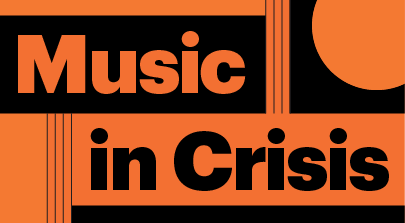How Fleeing the U.S. Before the Pandemic Saved Sondre Lerche’s Career

This is the latest installment of Rolling Stone’s Music in Crisis series, which looks at how people all across the music industry are coping with the coronavirus pandemic.
 While Covid-19 cases in the U.S. continue to surge and cripple live music, Norwegian musician Sondre Lerche is busy playing shows in his home country, crediting his ability to do so with an untranslatable Norwegian word.
While Covid-19 cases in the U.S. continue to surge and cripple live music, Norwegian musician Sondre Lerche is busy playing shows in his home country, crediting his ability to do so with an untranslatable Norwegian word.
“We have this word in Norwegian — dugnad — and it describes this sort of community-based activity where everybody gets together and you have a day where everyone just joins forces to do things that are good for the greater good,” he tells Rolling Stone. “When the prime minister [Erna Solberg] made her big speech on March 12th [with regard to Covid-19], she sort of channeled that spirit.” Translation: Norway united in the face of the surging pandemic — and that had a real effect.
Lerche usually resides in Los Angeles, but when the pandemic started raging across the United States in March, he took a cue from Solberg, who began effectively locking down Norway mid-month. “That made me take it more seriously, but it also made me wonder: ‘Why am I not seeing any significant response here in America?'” Lerche recalls. He moved back to Norway soon after, where he’s stayed with a rotating group of friends and family — after an initial quarantine. Ever since, his creative life has been flourishing rather than crumbling like many of his U.S. compatriots. Since June, he’s been playing shows across Norway in support of his most recent album, Patience — with just a guitar, suitcase, and a rental car in tow.
“I’ve played shows since I was a kid,” Lerche says. “So decided that I’d go wherever anyone is able to put on a show and we’re able to follow the rules and the regulations and make it a safe experience for everybody.” He’s now in the midst of playing 40 shows across Norway this summer — sometimes two performances per evening to accommodate socially distanced audiences.
Lerche credits his creative freedom — he’s able to legally play shows with a 200-person cap — with Norway’s rapid, unified response to the pandemic, which he compares less than favorably to America’s. Granted, Norway is far smaller than the United States — 5.4 million people compared to more than 300 million — but the country began imposing restrictions — effectively closing the country — when there were around 400 cases in mid-March. Numbers have declined until recently when foreign travel led to an uptick — still, further restrictions were put in place as a response, and the country has reported only 9,700 confirmed cases and 256 deaths, according to the Norwegian Institute of Public Health.
In the meantime, the U.S. declared a state of emergency around the same time as Norway — a few weeks after reporting its first death from the virus. Still, states took lockdown measures into their own hands — with varying levels of success — and some began reopening far too soon. Now, the U.S. death toll is at more than 160,000 and reopening measures march forward despite consistent flare-ups. There are currently 5.1 million cases in the U.S.
America’s scattershot approach for the pandemic has resulted in a music industry rife with tour cancellations, called-off festivals, and, increasingly, large outdoor events that effectively fail social-distancing guidelines and enrage media and local governments. Lerche, in retrospect, feels lucky that he left when he did. “I did seven shows for 20 people each,” he says, detailing the days and weeks after his June 5th album release. “That was really special because it was the first time after two months of isolation that people could come and be in a room with other human beings. It just made me really, really want to do more of that.”
And so he did. Playing to crowds of all sizes — after thorough venue cleanings and adhering to distancing guidelines — Lerche began traveling Norway. “I played a big concert hall with just 200 people — they’re sitting all spread out,” he recalls. “It almost looked like a big stadium show, but just with 200 people. It’s very bizarre. I’ve played outdoors by the ocean, at gastropubs. I decided I’d play anywhere safe.”
While the live-music industry in the United States is plummeting, Lerche — for one — is able to financially support himself. “We’ve been able to do the tour by me saying, ‘You know, I’m willing to go almost anywhere if we can figure out a way to make it work.’ And I’m cutting costs, of course. I’d rather be out there playing these new songs and this new record for an audience than being at home.”
As for when he’ll be returning to his L.A. apartment? “I’m not sure what piece of information or numbers I’ll need to see to make that decision,” he says. “America, of course, has a particularly bad situation. So I guess I’m sort of coming to terms with staying here probably for the rest of the year. I can keep the wheels in motion here. I can continue to do shows, of course, create. I can also make some money and stay afloat. It seems none of that would be possible in America right now.”